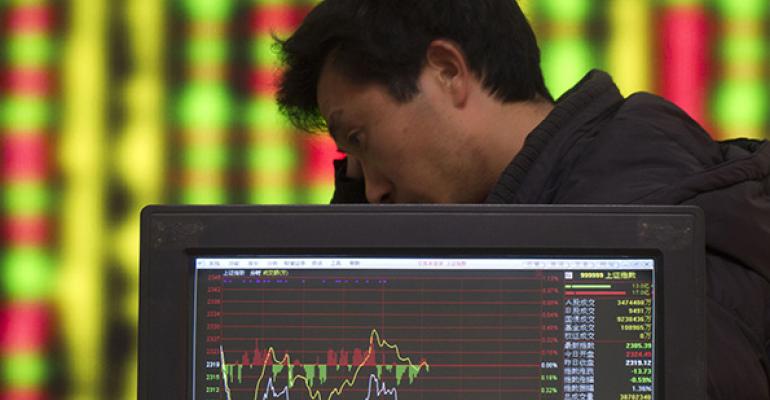A Chinese investor stabbed the chief executive of a struggling Beijing-based asset management company after losing his investment, a company source said, highlighting growing public anger over loosely regulated financial products.
Wang Jie, the CEO and general manager of Global Wealth Investment (Beijing), was stabbed in the shoulder on Sunday during a meeting with investors, the company representative said. He was rushed to hospital where he remained in a coma.
The assailant, aged in his 20s, was sitting next to Wang during the meeting, the source said, requesting anonymity because she was not authorised to speak to the media. After the stabbing, he calmly waited for police to arrive, she added.
"He was very young and didn't control his emotions well," the source said, adding that the assailant had invested 300,000 yuan ($47,460.84) in Global Wealth's products.
The incident was first reported by Chinese financial magazine Caixin. Police declined to comment on the case.
The crime exposes the escalating tensions in China's financial system, with many investors feeling duped after losing their investments in wealth management products that had been marketed as risk-free with double-digit returns.
Global Wealth, which used to have nearly 200 employees, managed more than 700 millionyuan in assets. The company's clients took comfort from the fact that their investment was backed by Hebei Financing Investment Guarantee Group, one of China's biggest state-backed credit guarantors.
But Hebei Financing decided not to honour its commitment earlier this year.
"Hebei Financing defaulted on us, and we defaulted on our clients," said the representative of Global Wealth. "We could not see any hope that Hebei Financing would compensate us ... and feel desperate."
The company has cut its employees to around 15 after Hebei Financing halted operations.
Last month, hundreds of investors hit the streets of Beijing and Shanghai to protest against the Fanya Metal Exchange in southwest China, after they were unable to withdraw their money. The exchange itself said it was suffering liquidity problems. ($1 = 6.3210 Chineseyuan) (Additional reporting by Beijing Newsroom; Editing by Stephen Coates)





